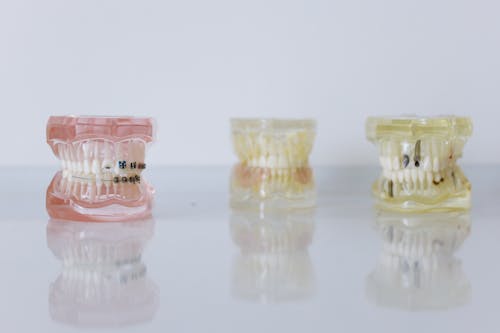5 Essential Facts About Dental Implant Surgery You Need to Know!
Understanding dental implant surgery is crucial for anyone considering this transformative dental solution. From the technology involved to recovery expectations, this article presents five essential facts that will enlighten prospective patients about the process and benefits of dental implants.
What is Dental Implant Surgery?
Dental implant surgery involves the placement of dental implants into the jawbone to serve as artificial tooth roots. This innovative procedure restores not only the appearance of the smile but also crucial functionality. Implants can support various restorations, including crowns, bridges, or dentures, providing a seamless blend into existing dental structures. Typically, the surgery consists of several stages: initial assessment, implant placement, healing, and final restoration. Understanding this multi-step process is essential for individuals seeking effective solutions for tooth loss.
Benefits of Choosing Dental Implants
The benefits of dental implant surgery are numerous and profound. Unlike dentures or bridges, dental implants provide a permanent solution that integrates well with the jawbone. Patients can enjoy improved speech, comfort, and ease of eating. Moreover, the risk of bone loss is significantly decreased, as dental implants promote bone health, preventing further deterioration in the jaw area. This stability not only enhances aesthetics but also contributes to a more youthful facial structure, addressing the concerns many have regarding aging and tooth loss.
The Importance of Pre-Surgical Consultation
A comprehensive pre-surgical consultation plays a pivotal role in the success of dental implant surgery. During this phase, dentists assess the patient’s overall health, dental history, and suitability for implants. Various diagnostic tools, such as X-rays or 3D imaging, may be utilized to evaluate the bone quality and determine the optimal implant placement. Additionally, this consultation allows for the development of a personalized treatment plan, addressing specific needs and concerns. By prioritizing this step, patients can significantly enhance the outcome of their dental implant surgery.
Recovery: What to Expect After Surgery
Following dental implant surgery, recovery typically involves a healing period of several weeks to months, depending on individual circumstances. During this time, resting and following postoperative instructions is crucial to ensure proper healing. Patients might experience mild discomfort or swelling, which can usually be managed with prescribed medications. Regular follow-up appointments are essential to monitor progress and address any concerns. Emphasizing the importance of adherence to post-surgical care can significantly affect the success of the dental implant surgery outcome.
Debunking Myths Surrounding Dental Implants
Myths and misconceptions about dental implant surgery can deter potential patients from exploring this option. One common myth is that the procedure is excessively painful; however, advancements in pain management techniques ensure that patients feel minimal discomfort. Another misconception is that dental implants are only suitable for older individuals—on the contrary, any adult with sufficient bone density can qualify for implants. By educating individuals about the realities of dental implants, patients can make informed decisions regarding their dental health.
Long-Term Maintenance for Implant Longevity
Achieving the longevity of dental implants requires a commitment to regular dental hygiene and maintenance. Just as regular visits to the dentist are essential for natural teeth, implants also necessitate routine check-ups to ensure optimal health. Patients are encouraged to maintain vigilant oral hygiene practices, including brushing and flossing regularly, to prevent peri-implant disease. Understanding the importance of these habits not only prolongs the life of the implants but also supports overall oral health, solidifying the investment made through dental implant surgery.
